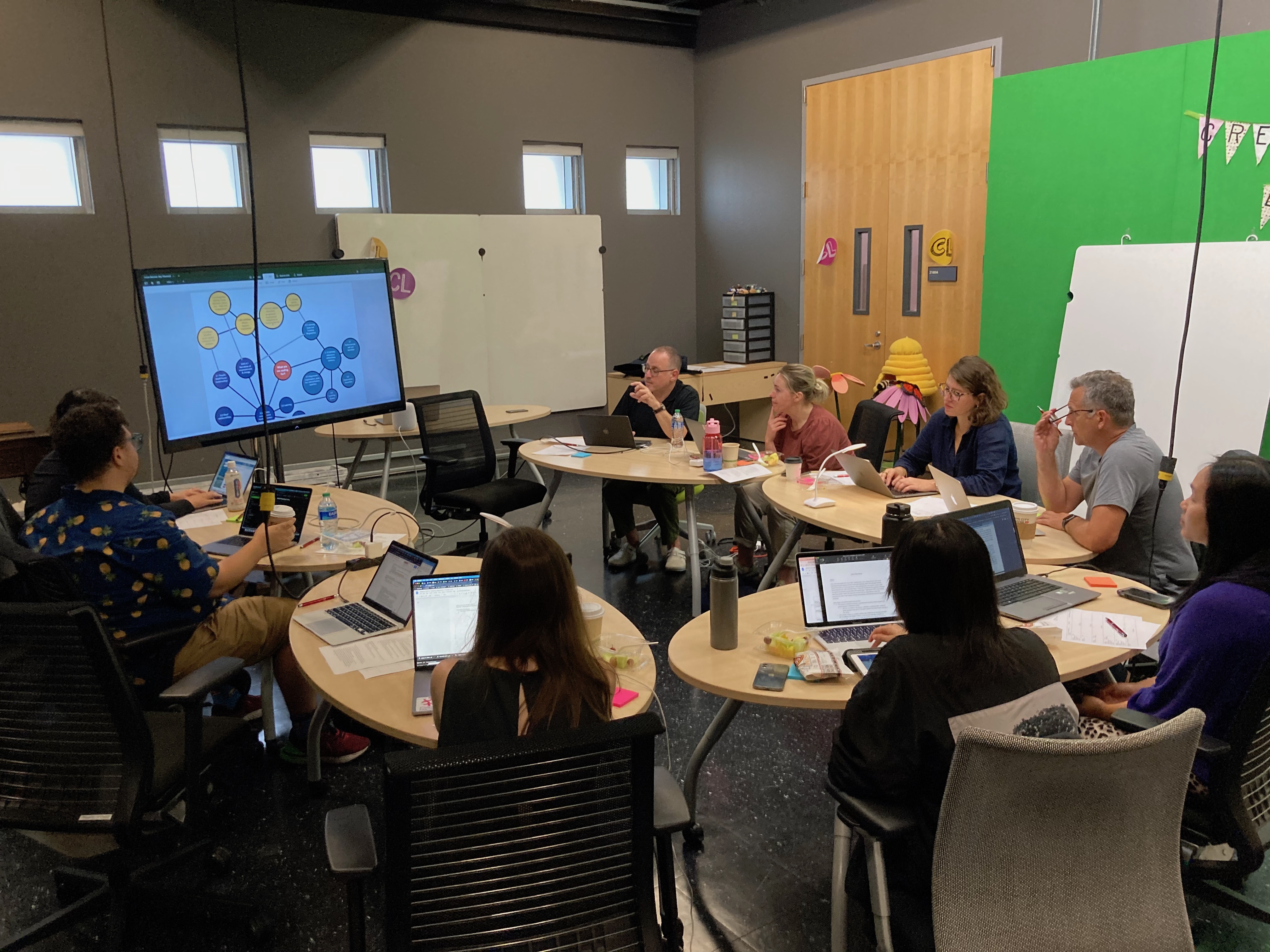About Trace
 TRACE project team meeting at UC Irvine, October 2022
TRACE project team meeting at UC Irvine, October 2022Tracing the Enduring Effects of Community Arts Programs (TRACE) is an international collaborative research project based at Deakin University, UC Irvine, University of Kentucky, and The New School, and funded by the Wallace Foundation. The project investigates the long-term effects of participation in afterschool arts and Out-of-School Time (OST) programs, particularly for those from marginalized backgrounds. Spanning the United States, Australia, and the United Kingdom, we conducted surveys and interviews with people who were at least seven years on from when they attended an afterschool arts program. Our study asks the question: how did these programs shape and influence their life trajectories and their understanding of arts? Together with partner community arts organizations in each of the research study sites (California, Kentucky, New York, London, England and Melbourne, Australia) we are designing ways to analyze the data and implement findings to make the most impact for both the organizations and participants in afterschool programs.
Project Goals
Our research aims to answer four key questions:
- What kinds of general long-term effects do we see, particularly for those from marginalized backgrounds?
- Do specific elements of afterschool arts programs lead to particular long-term effects?
- How has participation influenced how participants think about education and learning in general?
- How does reflecting on their experiences help the participants to make sense of the effects of learning?
Our Methods
To answer our questions, we used surveys and conducted over 100 extensive interviews. In these interviews, we asked alumni of community arts programs about their experiences in OST programs and in schools in general. We also used the interviews to learn more about their background and to see how participating in afterschool arts programs influences what they are doing today. Some of these interviews have been written up as case studies that we are referring to as “Learning Biographies,” where we make connections between an individual’s life experiences, their personal backgrounds, and learning in a general sense.
Our Aims
We believe that our research project should support and uplift the goals and hopes of the programs and alumni we work with. In every step of the process, we ask ourselves: are the things we’re doing now going to support the communities we are working in and with? We also believe that knowledge is not just created by researchers, but that this happens together with the people who attended the afterschool programs and the people who work there. Creating collective knowledge, coming from a justice framework, is central to this project. The kind of research we’re doing, conducting interviews to look at the long-term effects of these types of afterschool arts programs and working together with the community members to create collective knowledge and ideas, is not done often. This project therefore provides original contributions to the broader field of educational research and practice.
About The Wallace Foundation
This research shared on this website was funded by The Wallace Foundation. Any opinions, findings, and conclusions or recommendations expressed on this website are those of the author(s) and do not necessarily reflect the views of the Foundation.
Based in New York City, The Wallace Foundation is a philanthropy working to foster equity and improvements in learning and enrichment for young people, and in the arts for everyone.